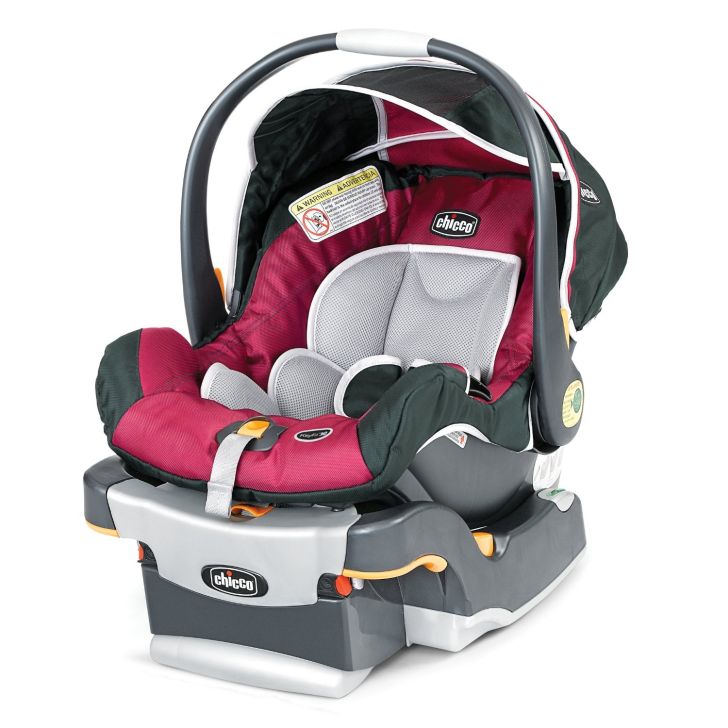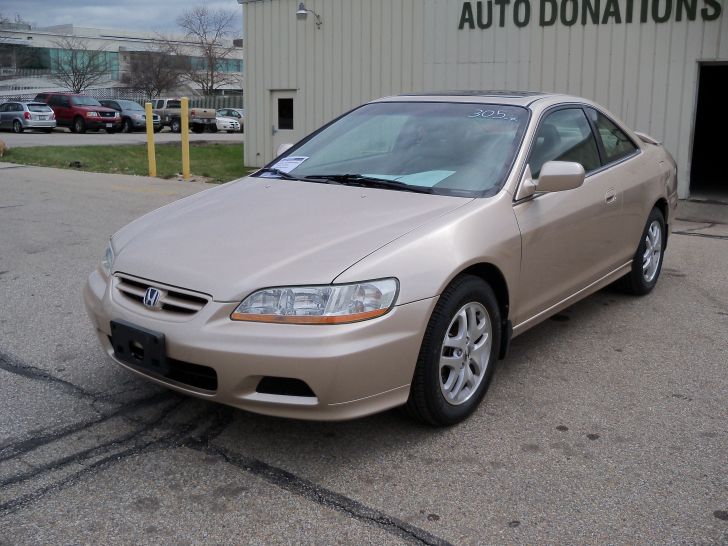Free Car Seat Through Medicaid. Are you in need of a child car seat but facing financial issues? Sadly, this is a challenge that numerous parents are still dealing with in the present day. What some parents may not be aware of is that they could potentially qualify for a free car seat through Medicaid. Moreover, if Medicaid doesn’t cover your needs, there are additional avenues for assistance.
How Much Does a Car Seat Cost?
On average, most baby car seats cost around $100, but it’s not uncommon to see them priced from $200 to $400! Those that cost $100 are just plastic, without having a minimal cushion to offer comfort to your kids. The sad part is that not everyone can buy the expensive ones.
If you’re having financial difficulties, the last thing you buy is a car seat. Most parents think that belts are enough for the job, but they don’t know there are two benefits of getting a car seat. First, the belt is not enough, and second, the cars don’t have the best shock absorbents to reduce jerks and sudden bends.
The best option most parents are unaware of is that you can get a free car seat through Medicaid!
Fortunately, there are many other ways also to get a free car seat.
About Medicaid
Medicaid is a government-sponsored insurance program for unprivileged people of any age who cannot afford medical care. It can also be referred to as a health care program and not as an insurance program. The services included in this program are for assisting low-income families and individuals in paying for doctor visits, hospitalizations, long-term medical expenses, custodial care, and more. At present, Medicaid has become one of the largest sources of funding and healthcare payers in the United States.
Moreover, Medicaid and CHIP services are one of six among the Centers for Medicare and Medicaid Services (CMS), which functions under the US Department of Health and Human Services (HHS). This joint program is funded primarily by the federal government and administered at the state level. However, the federal government holds no advantage in deciding and framing policies for the program.
The eligibility criteria for participating and receiving funds or free car seats through this program is based on state policies. Each state has its own margin to monitor and sanction the received requests.
Before you go on the application process, it’s a wise idea to familiarize yourself with the different types of car seats to determine which one best suits your needs.
The market offers a variety of car seat options, and the multitude of choices can often appear overwhelming. To simplify your decision-making process, we’ve categorized car seats into the following types:
1. Rear-Facing Car Seats
These seats are specially for newborn babies. Typically, the seats can accommodate children up to two years of age. They have a weight limit of around forty pounds.
2. Forward Facing-Only Car Seats
These car seats have a similar structure to rear-facing ones. But, as the name implies, they are meant to face forward. They are suitable for children who have outgrown rear-facing car seats.
3. Booster Seats
Also known as belt-positioning booster seats or BPBs, these are intended for children who have outgrown the previous two types of seats. Booster seats differ in structure from the previous two:
- They do not use a harness to secure the child.
- Instead, parents are expected to position the seat in a way that allows the car’s seat belt to secure the child safely.
- Various types of belt-positioning booster seats are available, including classic models, ones with detachable backs, and backless versions.
How to Get a Free Car Seat through Medicaid?
Medicaid is offered only to individuals and families who meet some specific requirements. If you satisfy all the below-mentioned criteria, then you can apply for a free car seat through Medicaid.
Criteria
- The main requirement to receive any Medicaid service is your nationality is that the recipient has to be a legal permanent resident or citizen of the United States.
- The second criterion is your income statement and the number of dependents in the income shown. Each state has a different margin on this point, which is calculated by taking the average income required for sustainable livelihoods in that particular area.
- Individuals and families above the minimum earnings criterion can also receive this fund if they have specific disabilities, making their medical expenses consume most of their earnings.
- This point is only relevant to those who have applied for free car seats. Medicaid generally asks you to enroll in a short car seat safety course before sanctioning a free car seat. The course is generally designed to increase awareness of the application of car seats and the proper methods and techniques of installing them.
Check if you are eligible for Medicaid assistance, especially a car seat, by applying through an online form on the Health Insurance Marketplace website.
You can go directly to the website by clicking on this link – https://www.healthcare.gov/
An alternative is that you can also apply directly through a state Medicaid agency. You will get the information and the contact information from the link mentioned above.
Once you apply for the program, Medicaid officials will review your application and determined your eligibility, and whether you will receive free medical care and related services from any medical provider that accepts the program.
The Alternatives to Get Free Car Seats
Here are the alternatives to get free car seats if you cannot use Medicaid service:
1. CHIP
CHIP or the Children’s Health Insurance Program has a primary goal of providing health coverage to children in families who cannot afford private care and have high incomes to receive Medicaid facilities. The federal government handles only the necessary funds and releases them to the required states.
Those families who are not qualified to receive a car seat through Medicaid or do not satisfy the criteria can opt for CHIP. This program is also a good alternative with a primary focus on infant and child health care.
2. Safe Kids Worldwide and Baby2Baby
There are several organizations offering assistance in this regard. Two notable organizations, Safe Kids Worldwide and Baby2Baby, are available to support child car seats and ensuring their safety.
Safe Kids Worldwide specializes in ensuring the proper installation of your child’s car seat and keeping you informed about recalls and other pertinent information.
On the other hand, Baby2Baby is a charitable organization that specifically focuses on children aged 0-12 who are experiencing financial hardship. They provide essential items such as clothing, diapers, car seats, and more for young children in need. For additional details and to locate a nearby facility, please visit their website.
3. 211/ The United Way
The toll-free number 211 is a valuable resource you can call to inquire about all your available options. Staffed by dedicated volunteers, this 24/7 helpline is open to everyone.
While they don’t directly provide car seats like Medicaid’s free car seat program, they serve as a comprehensive information hub to assist you.
In the age of the internet, navigating the web to find reliable information can be perplexing and even overwhelming. 211 is your solution – it’s a one-stop shop for all the information you require.
Wondering if Medicaid covers car seats? Curious about how to complete the application for a Medicaid free car seat? Interested in discovering other organizations in your area that offer similar assistance? You can find the answers to all these questions through a simple, cost-free call to 211.
In your quest to obtain a free car seat through Medicaid, it’s advisable to explore additional avenues for assistance, such as local churches and your hospital:
4. Local Churches
Many local churches allocate funds to support the less fortunate. Consider reaching out to them by writing a detailed description of your situation and your specific needs. Providing a thorough account of your circumstances can be instrumental in receiving help.
5. The Hospital
Hospitals are generally willing to assist individuals in need. Don’t hesitate to inquire at your hospital about Medicaid’s free car seat program or other similar forms of aid. They may be able to guide you and provide assistance in accessing the resources you require.
While the competition for Medicaid’s free car seats can be quite challenging, exploring multiple options is a wise approach. Keep in mind that the chances of securing a car seat through Medicaid may not be as high as you’d hope. So, considering the church and hospital options, along with others, can broaden your opportunities for assistance.
6. Medicaid Waiver Program
When Medicaid does not cover the expenses for a special needs car seat, you have alternative options to explore, one of which is the Medicaid Waiver program. Medicaid Waivers are exist to states, enabling them to extend Medicaid services to children with disabilities. These programs are typically a collaboration between federal and state entities.
A Medicaid Waiver can assist in covering the cost of a special needs car seat, even if your income exceeds the standard Medicaid eligibility requirements. However, it’s essential to note that these programs may have limitations on the benefits they offer. You can find a comprehensive list of waivers categorized by state at http://www.kidswaivers.org/.
Navigating the realm of assistance programs can be complex, and understanding the various types of waivers can be challenging. In general, 1915(c) and TEFRA/Katie Beckett Waivers are often needed to provide full Early and Periodic Screening, Diagnostic, and Treatment (EPSDT) benefits to children, which means that, in most cases, there are no imposed limits on the benefits provided.
It’s important to be aware that 1115 Waivers and those provided by individual states may come with limitations on the benefits they offer. States often impose restrictions on the amount of funding allocated, on a per-person or per-year basis.
When you’re uncertain about the specific provisions of a waiver program, it’s advisable to review each individual waiver to determine if your child and their need for a car seat qualify for assistance. Each program may have its own eligibility criteria and limitations, so thorough research and understanding of the specific waiver are crucial in accessing the support you need.
7. WIC
The WIC (Women, Infants, and Children) program is a federal assistance program aimed at offering nutrition education, healthy food, breastfeeding support, and various services to low-income women and children.
To access WIC services, you can search for your local WIC agency online or through local government resources. WIC primarily serves low-income women who are pregnant, breastfeeding, postpartum, or have children under the age of five. If you’re already enrolled in the WIC program, you may have the opportunity to participate in a car seat program as well.
Similar to many other assistance programs, WIC often requires participants to complete a safety course before they can receive a car seat. This safety course is to ensure that parents or caregivers have good information about how to use car seats correctly to protect their children during transportation.
8. State/ Local Health Departments
State or local health departments play a critical role in overseeing public health matters at the state or local level. Examples of such departments include the Texas Department of State Health Services, the California Department of Public Health, and the New York State Department of Health, among others.
To connect with these departments, you can search for your specific state or local health department’s official website or reach out to them via their official phone number.
These departments often offer support to low-income families or those with specific needs, although some programs may be accessible to all residents.
It’s important to be aware that the availability of programs and the eligibility criteria can vary from state to state or even from county to county. Therefore, reaching out to the department directly is the best way to obtain the most accurate and up-to-date information.
Many of the programs offered by these health departments may require participants to complete a brief safety course before receiving a car seat. This course is available to ensure that individuals are well-informed about the proper usage of car seats to enhance child safety during transportation.
9. Pregnancy Life Centers
Pregnancy Life Centers are typically non-profit organizations dedicated to offering a wide range of resources, support, and education to women during pregnancy and early parenthood. They often provide valuable assistance, including maternity items, baby supplies, and, in some cases, free car seats.
To find a Pregnancy Life Center, you can conduct an online search with your local area as a keyword. Some well-known national networks of pregnancy centers include Care Net and Heartbeat International, but there are also many independent centers that may be specific to your local community.
Pregnancy Life Centers primarily cater to women who are pregnant or have recently become mothers. Their goal is to provide support throughout the pregnancy journey and into the early years of child-rearing.
Most Pregnancy Life Centers offer their resources and aid as part of comprehensive programs that may include parenting or childbirth classes. Women who enroll in these classes may qualify for items like free car seats. The specifics of what is provided and the eligibility requirements can vary by center. So, it’s advisable to contact them directly for detailed information.
It’s important to keep in mind that these centers are often funded through donations and community support, so the availability of specific items may vary. Nevertheless, they are committed to offering as much assistance as possible to support mothers and their children.
Things to Check Before Installing a Free Car Seat
Remember to keep a few essential things in mind before installing the free car seat for your kids.
First of all, get the seat from a reliable organization. Make sure to collect all the necessary details of the seat. This includes the history of the car seat and whether it is a used one or a new part. It can be tempting to get a used car seat easily from various untrustworthy organizations or other places. The reason you should be cautious about obtaining seats is that you do not know the history of the seat. The seat may not be safe for use. Or it may have been involved at any time of the crash.
Look for the label on the seat. Besides, make sure it indicates that the seat meets or exceeds the Federal Motor Vehicle Safety Standards.
If possible, ask your pediatrician or surgeon to check the seat. They will help you know your child’s positioning as well as transportation needs.
Some kids require special child seats, and, to their surprise, they come in various specialized forms. This includes baby-only seats, convertible seats, forward-facing seats, or booster seats with belt positioning. Your pediatrician is the professional who knows which type of seat is best for your child.
Medicaid covers the cost of specialty seats if you meet all the required details and documents. Make sure the seat you got from Medicaid was not a special seat made. So, it can meet the requirements of any child in the past. Altering them to such seats will not help in offering full safety to your children.
The Conclusion
Car seats are available to offer safety to your child as it is of utmost importance. A child is a parent’s most precious wealth. Therefore, consider sharing this information as part of your gift in this good act. The information mentioned above can give you entire details on how to get a free car seat through Medicaid.
You can stay up-to-date on Medicaid policies that are present on the official website. New child restraint systems offer more options every year. So, you can always change the free seat if a better one is available.
Note:
Dear Muslims, it’s crucial to clear of interest rates, as they are considered Riba in Islam. Avoiding Riba is a fundamental aspect of following Islamic principles in financial matters. Make responsible and ethical choices to uphold your faith’s teachings!
References:
(https://carassists.com/personal-help/get-a-free-car-seat-from-medicaid/)
(https://carseatsmom.com/medicaid-special-needs-car-seats/)




